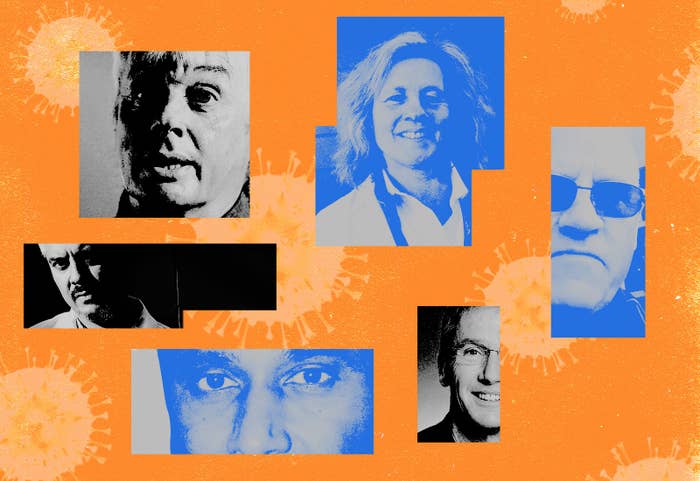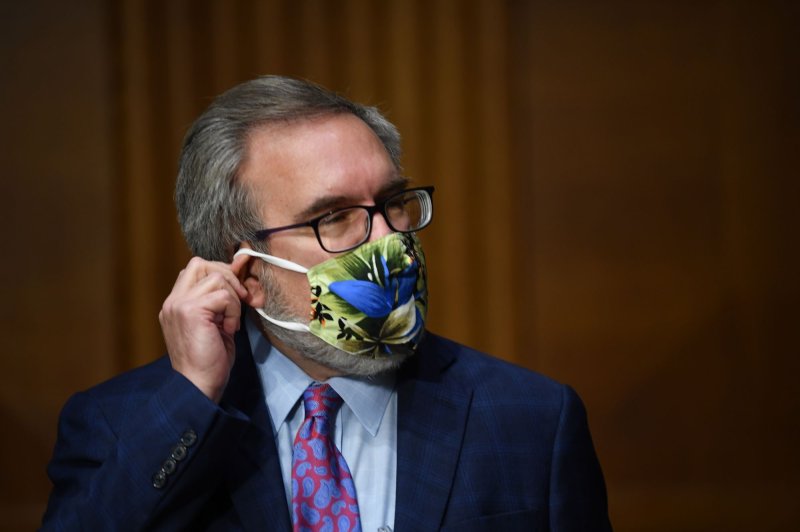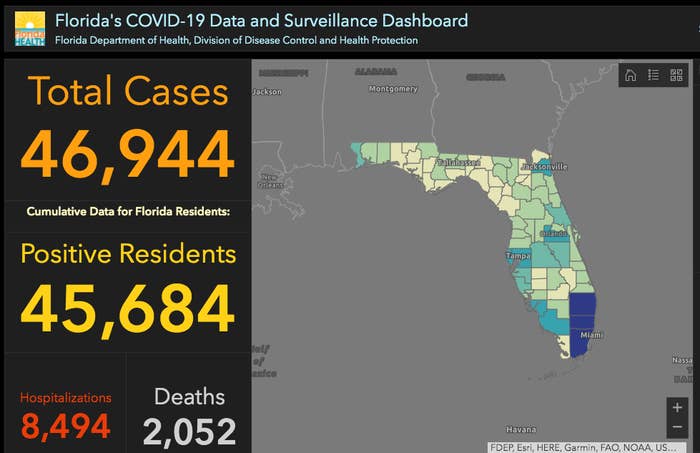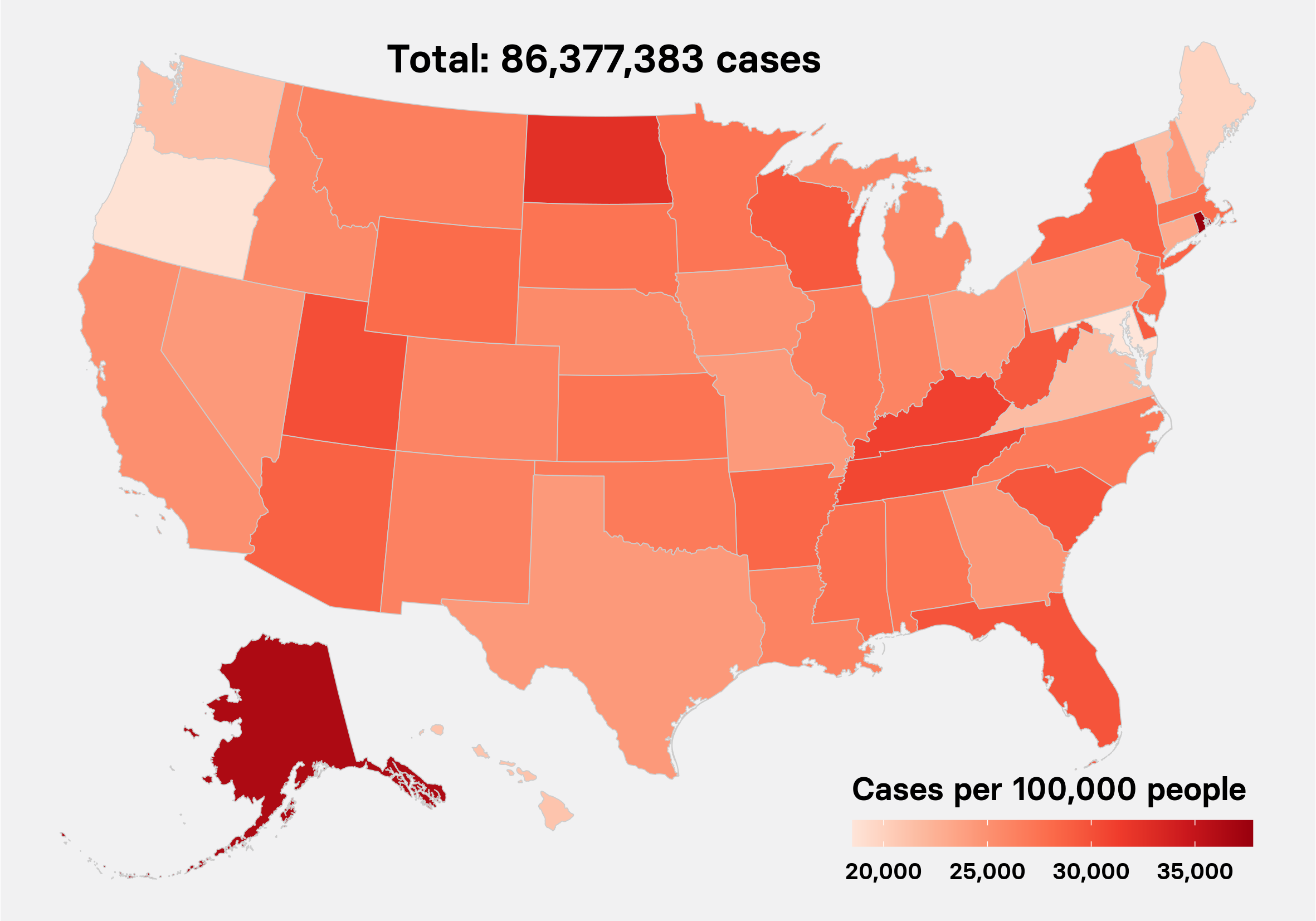A guide to the spin doctors and conspiracy theorists clogging up your social media feed.
May 21, 2020

Ben Kothe / Getty Images, AP
Many of those who spread hoaxes and pseudoscience about the coronavirus pandemic can be hard to distinguish from medical authorities recognized by their peers as legitimate.
To help you cut through the misinformation, we're keeping a running list of the most prominent people who have pushed what scientists and professional fact-checkers have found to be demonstrably false claims about the outbreak — and who they really are. We’re also highlighting real experts whose words were taken out of context and deliberately distorted.
The Spin Doctors

David Calvert / AP
Name: Judy Mikovits
Who she is: Mikovits holds a PhD in biochemistry and molecular biology from George Washington University. She was formerly the research director at the Whittemore Peterson Institute. In 2012, Mikovits coauthored a controversial paper on chronic fatigue syndrome. Following its publication, the academic journal Science retracted it when the work of Mikovits and her colleagues could not be replicated. Before the retraction, Mikovits’ employer fired her, saying it was unrelated to the controversy around the research. In a 2014 book Mikovits coauthored, she claimed that Dr. Anthony Fauci, director of the National Institute of Allergy and Infectious Diseases, had personally barred her from the NIH premises. In 2018, Fauci categorically denied that claim to the fact-checking site Snopes, saying, “I have no idea what she is talking about.” Since 2014, she has been making appearances at a conference dedicated to denying vaccine science and saying that autism and vaccinations are connected, which is false, according to the CDC.
What she has said about the coronavirus: In the video titled “Plandemic,” she paints herself as a whistleblower, claiming the coronavirus pandemic was planned by shadowy global figures. Mikovits found an audience — it was shared, liked, and commented on over 20 million times on Facebook. In the video, Mikovits goes against scientific advice and claims that wearing a mask could make someone sick, that sand and water from the beach can help cure the coronavirus, and that yet-uninvented vaccines for it could be dangerous. Mikovits also misrepresents her research and arrest, not mentioning that her study was retracted and claiming she was held in jail without charges.
What authorities have said: In 2011, Mikovits was fired from the Whittemore Peterson Institute. Subsequently, the paper she coauthored was retracted, after it was found that samples were contaminated and other scientists, including those in her own lab, could not replicate the results. After her firing, Mikovits faced a lawsuit from her former employer for allegedly stealing lab equipment and data. She spent five days in jail in California being held as a fugitive, after which the charges were dropped in 2012. Mikovits filed a countersuit against her former employer that was dismissed in 2016 in part because she did not provide the necessary documentation.

Getty Images
Name: Shiva Ayyadurai
Who he is: A candidate for the GOP nomination for Senate in Massachusetts, who dubiously claimed to have invented email. He also dated, and reportedly married, actor Fran Drescher. In 2018, during a previous Senate bid, the city of Cambridge, Massachusetts, ordered him to remove a sign from his campaign bus that read "Only a REAL INDIAN Can Defeat the Fake Indian," referencing Sen. Elizabeth Warren. Ayyadurai sued, and the city backed down.
What he has said about the coronavirus: Ayyadurai accused Fauci of ties to Big Pharma without evidence, according to Politico, and called for him to be fired. He defined COVID-19 as “an overactive dysfunctional immune system that overreacts and that's what causes damage to the body," which is not accurate, according to medical experts. Ayyadurai has also claimed that vitamin C could be used to treat the disease, which is not true, according to the World Health Organization.
What authorities have said: Ayyadurai claims to have created an email program while in high school in the ‘70s and labeled himself “the inventor of email,” but that claim has been disputed by experts. Technology historian Thomas Haigh wrote that Ayyadurai "did not invent email. [...] The details of Ayyadurai’s program were never published, it was never commercialized, and it had no apparent influence on any further work in the field." In 2017, a judge dismissed a libel suit Ayyadurai brought over a Techdirt story that stated he did not invent email. Ayyadurai appealed that dismissal, and in 2019 Techdirt agreed to settle the case that meant that the news organization had to link to Ayyadurai’s claim of him inventing email on its stories about him.

Youtube/Dr Eric Nepute / Via youtu.be
Name: Eric Nepute
Who he is: A chiropractor with a degree from Logan University and accredited by the state of Missouri.
What he has said about the coronavirus: In a Facebook Live video viewed 2.1 million times, Nepute urged people to drink quinine and eat zinc to fight COVID-19. He also filmed a video with Sherri Tenpenny, who speaks against vaccine science, claiming the development of a COVID-19 vaccine was a plot to encourage mandatory vaccinations.
What authorities have said: As Snopes pointed out, he made pseudoscientific claims, including about the health benefits of tonic water: "You would need to drink more than 12 liters of Schweppes tonic water every eight hours to maintain those therapeutic levels of quinine (usually provided in pill form) from tonic water." In addition, Nepute claimed that quinine worked "similar-ish" to chloroquine and hydroxychloroquine, the compounds under study as potential treatments for COVID-19, a claim which Snopes reported was inaccurate. The year before the pandemic, the Better Business Bureau challenged an advertising claim on Nepute's website, which stated, “Our ideal circumstance is what we call Preconception Care. This is when parents come to us at least 2 years before conceiving a child to first correct unidentified health issues with them in order to prevent those genes from being passed down.” According to the BBB, Nepute’s office initially replied but “did not respond to BBB’s request for substantiation/documentation.”

Getty Images
Name: Rashid Buttar
Who he is: An osteopath who earned his degree from Des Moines University. In 2009, Buttar claimed to have treated a young woman who said she got dystonia and was unable to speak after receiving a flu vaccine. News reports at the time challenged the story, according to ABC News. Buttar has been a proponent of chelation therapy as a treatment for various illnesses and disorders, including autism, which involves administering IV or pills that bind to metals in a patient's blood. Other than as a treatment for lead or mercury poisoning, the Mayo Clinic does not recommend chelation therapy. Buttar has long spoken against vaccines and previously participated in a conference in which speakers linked autism to vaccinations, a claim for which the CDC has said there is no scientific evidence.
What he has said about the coronavirus: Buttar has made claims disputed by fact-checkers regarding the coronavirus, including that receiving a flu shot was tied to testing positive. Buttar also claimed that the coronavirus was a biological weapon. (A paper in the scientific journal Nature said the virus was “not a laboratory construct.”) Buttar called for Dr. Fauci to be jailed over a series of grants that were awarded after the 2003 SARS outbreak.
What authorities have said: In 2010, the North Carolina medical board reprimanded him for, among other complaints, treating three cancer patients with therapies that had “no known value for the treatment of cancer,” documents from the case said. According to a WCNC report at the time, “Buttar has spent years selling skin drops at $150 a bottle as a treatment for diseases ranging from autism to cancer.” In 2013, the FDA sent Buttar a warning letter for promoting and distributing unapproved medical products on his websites and YouTube videos. "The medical board and FDA have a responsibility to make sure doctors don't push too close to the edge," Buttar previously said in an emailed statement to BuzzFeed News. "The regulatory bodies serve an important function and are needed to safeguard the public."
Name: Dr. Artin Massihi
Who he is: The co-owner of Accelerated Urgent Care, a private clinic in Bakersfield, California.
What he has said about the coronavirus: Massihi and his partner, Dr. Dan Erickson, called a press conference on April 22 to share data they claimed showed that the lockdowns should end, that COVID-19 was less deadly than commonly thought, and that physicians were being pressured to list COVID-19 as the cause of death for patients who had not tested positive. Public health authorities and a wide range of experts in the relevant fields condemned their data and conclusions as deeply flawed, the Mercury News reported.
What authorities have said: Massihi’s comments about COVID-19 were condemned in a joint statement by the American College of Emergency Physicians and the American Academy of Emergency Medicine as “reckless and untested musings” that were “inconsistent with current science and epidemiology regarding COVID-19.”
Name: Dr. Dan Erickson
Who he is: A former emergency room physician who co-owns Accelerated Urgent Care, a private clinic in Bakersfield, California.
What he has said about the coronavirus: At the press conference Erickson made a statistical error when he said, “California is 12% positive. We have 39.5 million people. If we just take a basic calculation and just extrapolate that out, that equates to about 4.7 million cases throughout the state of California.” In fact, 12% of Californians who’d been tested were positive — a difference that undercuts his claim, according to public health professor Andrew Noymer.
What authorities have said: Kern Public Health, the local health authority, also said Erickson was wrong when he claimed its top doctor agreed with him about the need to end the lockdowns.
The 5G Conspiracy Theorists

AP
Name: David Icke
Who he is: Formerly a soccer player, sports broadcaster, and spokesperson for the UK Green Party, Icke is known for conspiracy theories that the Center for Countering Digital Hate has called anti-Semitic. He has suggested that interdimensional reptilian beings secretly control the world, that the moon is a spacecraft, and that the 9/11 attacks were not carried out by al-Qaeda, but by Israel. He also claimed to be the "son of God."
What he has said about the coronavirus: Icke has inaccurately claimed that Jews were behind the coronavirus, according to the BBC, and has promoted the conspiracy theory that 5G technology causes COVID-19. Following these claims, Facebook and YouTube suspended Icke’s pages. Spotify removed a podcast episode featuring an interview with Icke in which he doubted the existence of the virus.
What authorities have said: In 2017, the nonprofit Political Research Associates described Icke’s work as “a mishmash of most of the dominant themes of contemporary neofascism, mixed in with a smattering of topics culled from the U.S. militia movement.” In 2018, Jonathan Greenblatt, chief executive of the Anti-Defamation League, said of Icke, “There is no fair reading of Icke’s work that could be seen as not anti-Semitic.” UK media regulator Ofcom ruled last month that a London Live TV segment with Icke “posed threat to public health.” The Center for Countering Digital Hate has called on all major social media companies to deplatform Icke. After Facebook removed his official page, Icke tweeted, "Fascist Facebook deletes David Icke - the elite are TERRIFIED."

Facebook
Name: Mark Steele
Who he is: Steele claims in videos and at conferences that he is a weapons expert. According to Vice, he works at Reevu, a UK-based firm that designs motorcycle helmets. Since 2018, Steele has harassed the town council of Gateshead, England, about 5G technology, according to Chronicle Live. The council published a Facebook post in 2018 denying it used 5G technology and rebuffing his other claims, like that street lights in town caused cancer.
What he has said about the coronavirus: Steele claimed that 5G cellular technology causes COVID-19, calling the disease a “genocide" carried by “the deep state.” An electrical engineer and a virologist told USA Today that 5G and the coronavirus are not linked. Steele also gave a speech about 5G at a 2018 conference for the Democrats and Veterans Party, an offshoot of the British far-right political party UKIP, that was featured prominently in a now-deleted viral video.
What authorities have said: In 2018, a British court convicted him for threatening two councilors in Gateshead. Steele is currently under an injunction to prevent him from harassing or threatening the town's councilors or staff but was allowed by the judge to continue speaking against 5G. According to Chronicle Live, Steele denied that he was harassing council members, saying he "acted proportionally."
The Misquoted

flickr/minnesotasenaterepublicans
Name: Sen. Scott Jensen
Who he is: Jensen is a longtime family physician in Minnesota and a Republican member of the Minnesota Senate, who was elected in 2016. He is not seeking reelection in 2020 and is rumored to be interested in a run for governor.
What he has said about the virus: On April 7, he gave a North Dakota TV interview in which he suggested that hospitals and physicians were being told by the CDC to list COVID-19 as the cause of death in cases where it might not be warranted. His comment that “Fear is a great way to control people” was picked up by InfoWars and QAnon supporters. He later appeared on Fox News and said hospitals get paid more if a patient is listed as having COVID-19 and is on a ventilator, which is true. He did not directly say hospitals are doing this for the money, just that it’s a concern. His TV appearances were used in the “Plandemic” video, but he disavows virus conspiracies. "I think that things are being taken out of context,” he told the Star Tribune.
What authorities have said: Jensen is a physician in good standing.

Youtube/Medscape / Via youtu.be
Name: Dr. Cameron Kyle-Sidell
Who he is: Kyle-Sidell is an emergency and critical care physician at Maimonides hospital in Brooklyn. In March and April, he worked in an intensive care unit dedicated to COVID-19 patients. He received his medical degree from Ben Gurion University of the Negev in Israel.
What he has said about the coronavirus: In a March 31 YouTube video, he questioned whether putting COVID-19 patients on ventilators was the right protocol and worried that this “misguided treatment will lead to a tremendous amount of harm to a great number of people in a very short time.” Since he raised the issue, other physicians have shared similar views. But his opinion has been misstated by conspiracy theorists to imply that the virus is not what the medical establishment says it is. On May 10, he tweeted that he had not consented to being included in “Plandemic,” saying, “I do not believe the narrative underlying the origin or spread of this terrible disease is one of human ill intent. We are fighting a virus not each other.”
What authorities have said: Kyle-Sidell is a doctor in good standing and his inclusion in “Plandemic” and other fringe narratives is the result of people misinterpreting or exaggerating his comments.

Jane Lytvynenko is a reporter for BuzzFeed News and is based in Toronto, Canada. PGP fingerprint: A088 89E6 2500 AD3C 8081 BAFB 23BA 21F3 81E0 101C.
Contact Jane Lytvynenko at jane.lytvynenko@buzzfeed.com

Ben Kothe / Getty Images, AP
Many of those who spread hoaxes and pseudoscience about the coronavirus pandemic can be hard to distinguish from medical authorities recognized by their peers as legitimate.
To help you cut through the misinformation, we're keeping a running list of the most prominent people who have pushed what scientists and professional fact-checkers have found to be demonstrably false claims about the outbreak — and who they really are. We’re also highlighting real experts whose words were taken out of context and deliberately distorted.
The Spin Doctors

David Calvert / AP
Name: Judy Mikovits
Who she is: Mikovits holds a PhD in biochemistry and molecular biology from George Washington University. She was formerly the research director at the Whittemore Peterson Institute. In 2012, Mikovits coauthored a controversial paper on chronic fatigue syndrome. Following its publication, the academic journal Science retracted it when the work of Mikovits and her colleagues could not be replicated. Before the retraction, Mikovits’ employer fired her, saying it was unrelated to the controversy around the research. In a 2014 book Mikovits coauthored, she claimed that Dr. Anthony Fauci, director of the National Institute of Allergy and Infectious Diseases, had personally barred her from the NIH premises. In 2018, Fauci categorically denied that claim to the fact-checking site Snopes, saying, “I have no idea what she is talking about.” Since 2014, she has been making appearances at a conference dedicated to denying vaccine science and saying that autism and vaccinations are connected, which is false, according to the CDC.
What she has said about the coronavirus: In the video titled “Plandemic,” she paints herself as a whistleblower, claiming the coronavirus pandemic was planned by shadowy global figures. Mikovits found an audience — it was shared, liked, and commented on over 20 million times on Facebook. In the video, Mikovits goes against scientific advice and claims that wearing a mask could make someone sick, that sand and water from the beach can help cure the coronavirus, and that yet-uninvented vaccines for it could be dangerous. Mikovits also misrepresents her research and arrest, not mentioning that her study was retracted and claiming she was held in jail without charges.
What authorities have said: In 2011, Mikovits was fired from the Whittemore Peterson Institute. Subsequently, the paper she coauthored was retracted, after it was found that samples were contaminated and other scientists, including those in her own lab, could not replicate the results. After her firing, Mikovits faced a lawsuit from her former employer for allegedly stealing lab equipment and data. She spent five days in jail in California being held as a fugitive, after which the charges were dropped in 2012. Mikovits filed a countersuit against her former employer that was dismissed in 2016 in part because she did not provide the necessary documentation.

Getty Images
Name: Shiva Ayyadurai
Who he is: A candidate for the GOP nomination for Senate in Massachusetts, who dubiously claimed to have invented email. He also dated, and reportedly married, actor Fran Drescher. In 2018, during a previous Senate bid, the city of Cambridge, Massachusetts, ordered him to remove a sign from his campaign bus that read "Only a REAL INDIAN Can Defeat the Fake Indian," referencing Sen. Elizabeth Warren. Ayyadurai sued, and the city backed down.
What he has said about the coronavirus: Ayyadurai accused Fauci of ties to Big Pharma without evidence, according to Politico, and called for him to be fired. He defined COVID-19 as “an overactive dysfunctional immune system that overreacts and that's what causes damage to the body," which is not accurate, according to medical experts. Ayyadurai has also claimed that vitamin C could be used to treat the disease, which is not true, according to the World Health Organization.
What authorities have said: Ayyadurai claims to have created an email program while in high school in the ‘70s and labeled himself “the inventor of email,” but that claim has been disputed by experts. Technology historian Thomas Haigh wrote that Ayyadurai "did not invent email. [...] The details of Ayyadurai’s program were never published, it was never commercialized, and it had no apparent influence on any further work in the field." In 2017, a judge dismissed a libel suit Ayyadurai brought over a Techdirt story that stated he did not invent email. Ayyadurai appealed that dismissal, and in 2019 Techdirt agreed to settle the case that meant that the news organization had to link to Ayyadurai’s claim of him inventing email on its stories about him.

Youtube/Dr Eric Nepute / Via youtu.be
Name: Eric Nepute
Who he is: A chiropractor with a degree from Logan University and accredited by the state of Missouri.
What he has said about the coronavirus: In a Facebook Live video viewed 2.1 million times, Nepute urged people to drink quinine and eat zinc to fight COVID-19. He also filmed a video with Sherri Tenpenny, who speaks against vaccine science, claiming the development of a COVID-19 vaccine was a plot to encourage mandatory vaccinations.
What authorities have said: As Snopes pointed out, he made pseudoscientific claims, including about the health benefits of tonic water: "You would need to drink more than 12 liters of Schweppes tonic water every eight hours to maintain those therapeutic levels of quinine (usually provided in pill form) from tonic water." In addition, Nepute claimed that quinine worked "similar-ish" to chloroquine and hydroxychloroquine, the compounds under study as potential treatments for COVID-19, a claim which Snopes reported was inaccurate. The year before the pandemic, the Better Business Bureau challenged an advertising claim on Nepute's website, which stated, “Our ideal circumstance is what we call Preconception Care. This is when parents come to us at least 2 years before conceiving a child to first correct unidentified health issues with them in order to prevent those genes from being passed down.” According to the BBB, Nepute’s office initially replied but “did not respond to BBB’s request for substantiation/documentation.”

Getty Images
Name: Rashid Buttar
Who he is: An osteopath who earned his degree from Des Moines University. In 2009, Buttar claimed to have treated a young woman who said she got dystonia and was unable to speak after receiving a flu vaccine. News reports at the time challenged the story, according to ABC News. Buttar has been a proponent of chelation therapy as a treatment for various illnesses and disorders, including autism, which involves administering IV or pills that bind to metals in a patient's blood. Other than as a treatment for lead or mercury poisoning, the Mayo Clinic does not recommend chelation therapy. Buttar has long spoken against vaccines and previously participated in a conference in which speakers linked autism to vaccinations, a claim for which the CDC has said there is no scientific evidence.
What he has said about the coronavirus: Buttar has made claims disputed by fact-checkers regarding the coronavirus, including that receiving a flu shot was tied to testing positive. Buttar also claimed that the coronavirus was a biological weapon. (A paper in the scientific journal Nature said the virus was “not a laboratory construct.”) Buttar called for Dr. Fauci to be jailed over a series of grants that were awarded after the 2003 SARS outbreak.
What authorities have said: In 2010, the North Carolina medical board reprimanded him for, among other complaints, treating three cancer patients with therapies that had “no known value for the treatment of cancer,” documents from the case said. According to a WCNC report at the time, “Buttar has spent years selling skin drops at $150 a bottle as a treatment for diseases ranging from autism to cancer.” In 2013, the FDA sent Buttar a warning letter for promoting and distributing unapproved medical products on his websites and YouTube videos. "The medical board and FDA have a responsibility to make sure doctors don't push too close to the edge," Buttar previously said in an emailed statement to BuzzFeed News. "The regulatory bodies serve an important function and are needed to safeguard the public."
Name: Dr. Artin Massihi
Who he is: The co-owner of Accelerated Urgent Care, a private clinic in Bakersfield, California.
What he has said about the coronavirus: Massihi and his partner, Dr. Dan Erickson, called a press conference on April 22 to share data they claimed showed that the lockdowns should end, that COVID-19 was less deadly than commonly thought, and that physicians were being pressured to list COVID-19 as the cause of death for patients who had not tested positive. Public health authorities and a wide range of experts in the relevant fields condemned their data and conclusions as deeply flawed, the Mercury News reported.
What authorities have said: Massihi’s comments about COVID-19 were condemned in a joint statement by the American College of Emergency Physicians and the American Academy of Emergency Medicine as “reckless and untested musings” that were “inconsistent with current science and epidemiology regarding COVID-19.”
Name: Dr. Dan Erickson
Who he is: A former emergency room physician who co-owns Accelerated Urgent Care, a private clinic in Bakersfield, California.
What he has said about the coronavirus: At the press conference Erickson made a statistical error when he said, “California is 12% positive. We have 39.5 million people. If we just take a basic calculation and just extrapolate that out, that equates to about 4.7 million cases throughout the state of California.” In fact, 12% of Californians who’d been tested were positive — a difference that undercuts his claim, according to public health professor Andrew Noymer.
What authorities have said: Kern Public Health, the local health authority, also said Erickson was wrong when he claimed its top doctor agreed with him about the need to end the lockdowns.
The 5G Conspiracy Theorists

AP
Name: David Icke
Who he is: Formerly a soccer player, sports broadcaster, and spokesperson for the UK Green Party, Icke is known for conspiracy theories that the Center for Countering Digital Hate has called anti-Semitic. He has suggested that interdimensional reptilian beings secretly control the world, that the moon is a spacecraft, and that the 9/11 attacks were not carried out by al-Qaeda, but by Israel. He also claimed to be the "son of God."
What he has said about the coronavirus: Icke has inaccurately claimed that Jews were behind the coronavirus, according to the BBC, and has promoted the conspiracy theory that 5G technology causes COVID-19. Following these claims, Facebook and YouTube suspended Icke’s pages. Spotify removed a podcast episode featuring an interview with Icke in which he doubted the existence of the virus.
What authorities have said: In 2017, the nonprofit Political Research Associates described Icke’s work as “a mishmash of most of the dominant themes of contemporary neofascism, mixed in with a smattering of topics culled from the U.S. militia movement.” In 2018, Jonathan Greenblatt, chief executive of the Anti-Defamation League, said of Icke, “There is no fair reading of Icke’s work that could be seen as not anti-Semitic.” UK media regulator Ofcom ruled last month that a London Live TV segment with Icke “posed threat to public health.” The Center for Countering Digital Hate has called on all major social media companies to deplatform Icke. After Facebook removed his official page, Icke tweeted, "Fascist Facebook deletes David Icke - the elite are TERRIFIED."

Name: Mark Steele
Who he is: Steele claims in videos and at conferences that he is a weapons expert. According to Vice, he works at Reevu, a UK-based firm that designs motorcycle helmets. Since 2018, Steele has harassed the town council of Gateshead, England, about 5G technology, according to Chronicle Live. The council published a Facebook post in 2018 denying it used 5G technology and rebuffing his other claims, like that street lights in town caused cancer.
What he has said about the coronavirus: Steele claimed that 5G cellular technology causes COVID-19, calling the disease a “genocide" carried by “the deep state.” An electrical engineer and a virologist told USA Today that 5G and the coronavirus are not linked. Steele also gave a speech about 5G at a 2018 conference for the Democrats and Veterans Party, an offshoot of the British far-right political party UKIP, that was featured prominently in a now-deleted viral video.
What authorities have said: In 2018, a British court convicted him for threatening two councilors in Gateshead. Steele is currently under an injunction to prevent him from harassing or threatening the town's councilors or staff but was allowed by the judge to continue speaking against 5G. According to Chronicle Live, Steele denied that he was harassing council members, saying he "acted proportionally."
The Misquoted

flickr/minnesotasenaterepublicans
Name: Sen. Scott Jensen
Who he is: Jensen is a longtime family physician in Minnesota and a Republican member of the Minnesota Senate, who was elected in 2016. He is not seeking reelection in 2020 and is rumored to be interested in a run for governor.
What he has said about the virus: On April 7, he gave a North Dakota TV interview in which he suggested that hospitals and physicians were being told by the CDC to list COVID-19 as the cause of death in cases where it might not be warranted. His comment that “Fear is a great way to control people” was picked up by InfoWars and QAnon supporters. He later appeared on Fox News and said hospitals get paid more if a patient is listed as having COVID-19 and is on a ventilator, which is true. He did not directly say hospitals are doing this for the money, just that it’s a concern. His TV appearances were used in the “Plandemic” video, but he disavows virus conspiracies. "I think that things are being taken out of context,” he told the Star Tribune.
What authorities have said: Jensen is a physician in good standing.

Youtube/Medscape / Via youtu.be
Name: Dr. Cameron Kyle-Sidell
Who he is: Kyle-Sidell is an emergency and critical care physician at Maimonides hospital in Brooklyn. In March and April, he worked in an intensive care unit dedicated to COVID-19 patients. He received his medical degree from Ben Gurion University of the Negev in Israel.
What he has said about the coronavirus: In a March 31 YouTube video, he questioned whether putting COVID-19 patients on ventilators was the right protocol and worried that this “misguided treatment will lead to a tremendous amount of harm to a great number of people in a very short time.” Since he raised the issue, other physicians have shared similar views. But his opinion has been misstated by conspiracy theorists to imply that the virus is not what the medical establishment says it is. On May 10, he tweeted that he had not consented to being included in “Plandemic,” saying, “I do not believe the narrative underlying the origin or spread of this terrible disease is one of human ill intent. We are fighting a virus not each other.”
What authorities have said: Kyle-Sidell is a doctor in good standing and his inclusion in “Plandemic” and other fringe narratives is the result of people misinterpreting or exaggerating his comments.

Jane Lytvynenko is a reporter for BuzzFeed News and is based in Toronto, Canada. PGP fingerprint: A088 89E6 2500 AD3C 8081 BAFB 23BA 21F3 81E0 101C.
Contact Jane Lytvynenko at jane.lytvynenko@buzzfeed.com

Ryan Broderick is a senior reporter for BuzzFeed News and is based in New York City.
Contact Ryan Broderick at ryan@buzzfeed.com.

Craig Silverman is a media editor for BuzzFeed News and is based in Toronto.
Contact Craig Silverman at craig.silverman@buzzfeed.com.











